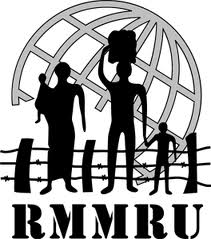Extent of this particular migration flow remains unknown. Some reports from media have estimated that 15 to 20 thousand people may have migrated during last year through this route. The UNHCR’s Irregular Maritime Movements report (January to June 2014) claimed that since 2012 till June 2014, 87,000 people have migrated to Malaysia by maritime routes through Bay of Bengal, via Thailand. 53,000 migrants reached Malaysia in the last year alone, which is 61% higher than previous year.
Due to calm ocean conditions, October to January is the primary season for irregular migration and trafficking. This is why the network of informal dalals as well as traffickers is desperately recruiting aspirant migrants from certain parts of Bangladesh. Names of origin districts received by the media show that only few of those belong to traditional international labour migration pockets. Most of them are from low international migration producing districts ie; Jessore, Khulna, Ragpur, Dinajpur, Rajshahi, Kurigram, Baguraa, Sirajganj, Satkhira, Natore etc. During 2011-2012, Narshingdi used to be one of the major source areas of such migration. They are not visible in recent migration incidents. However, some of them have become part of the network of informal dalals. A deep assessment of the areas show that poverty level is higher in majority of these areas, social network of international migration is absent there and more importantly the adverse affect of climate change are experienced more by some of these districts.
Through the press conference, RMMRU tried to give a voice to the families of Bangladeshi migrants who have greatly suffered the consequences of this perilous migration. Over the last month, members of these families were requesting RMMRU to aid them in investigating this and returning their loved ones to safety. RMMRU conducted an initial investigation in seven upazilas of Sirajganj district. We were astonished with the number of cases that the victim families and local representatives cited. According to them more than 4000 young men have embarked on similar journeys in an effort to reach Malaysia. Yet more than 400 of them remained untraceable.
We have attempted to create the opportunity of listening to their heartbreaking stories firsthand. We would also like to develop a course of action to help these families in bringing back their family members. We are aware that Bangladesh alone cannot resolve these as different syndicates of Malaysia, Thailand and Myanmar are also involved.
Irregular migration through this route has taken place earlier as well. People risked their life in the past also. However, the recent incidents revealed that an international network of criminal gang, pirates of Andaman, Thailand and Burma and employers of Malaysia and Thailand who want to employ workers with minimum or no salary has developed their vested interest in such migration.
The government of Bangladesh recently has enacted overseas employment and Migration act in 2013. According to article 34 of the law, the local Police, TNO, elected local representatives, ministry of Expatriate Welfare and Overseas employment and other related ministry BMET and BAIRA were empowered to file a case against culprits. It is crucial that cases are filed under this law and that offenders be charged and face consequences. But it is unfortunate that till date no cases were filed under this law.
Representatives of civil society came up with certain demands. They pledged to display blacked-out bands on International Migrants’ Day (December 18th 2014) if the government does not immediately act in combating these issues. Furthermore, if the issue is not addressed, civil society bodies will rethink the observation of International Migrants’ Day with the government.
Demands
• The government of Bangladesh should immediately create an inter-ministerial and inter agency committee (including the Bangladesh Border Guard, Navy and Coast guard) to prepare and implement an action plan to reduce irregular maritime migration flow• Under this inter-ministerial committee, a taskforce should be formed with representation from security forces, local administration and representatives of Chittagong and Cox’s Bazaar district.• Exemplary punishment should be ensured to those who are involved with processing of irregular migration. This should be done either under Overseas Employment and Migration law, 2013 or Women and Child Trafficking Law, 2012.• An interstate joint commission should be formed immediately to stop this irregular and risky migration. This body should facilitate sharing of information and promote coordination to address flows of irregular migration.
• Irregular migration through the Bay of Bengal should be considered as an urgent issue at the next meeting of the Global Forum on Migration and Development (GFMD)
• Bangladesh and Malaysian government should reevaluate the Government to Government (G2G) agreement and reestablish formal migration process within these two countries.
• The government of Thailand does not regulate those fishing boats under labour law which has less than 15 workers. Bangladesh should take help of international forums to exert pressure upon Thai government to bring such fishing entrepreneurs under the labour law of that country so that they cannot get away by employing Bangladeshi workers in a slave like condition.
• The government and society at large should come forward to provide assistance to those families who have lost their beloved ones, not less important- the income earner of the family
On behalf of RMMRU executive committee
Dr. Tasneem Siddiqui



